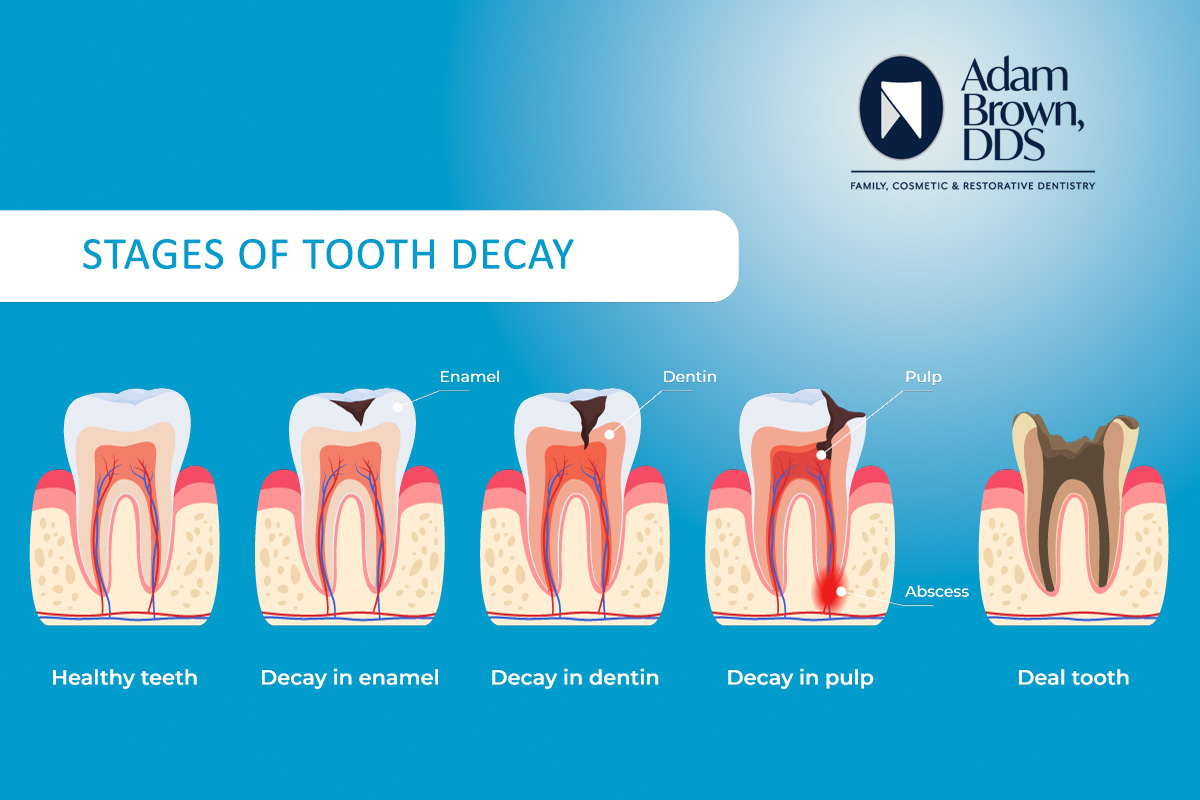How to Keep Chronic Cavities at Bay
Do you feel like you’re constantly getting cavities? You’re not alone. Cavities are incredibly common, and most Americans experience them by their mid-30s.
Several factors contribute to cavity development, including dental hygiene, family history, and diet. The good news is that you can take proactive steps to prevent them. This article will explain cavities in more detail and provide tips for managing them.

What is a Cavity?
A cavity is a hole in your tooth caused by tooth decay. This decay occurs when bacteria in plaque (a sticky film on your teeth) produce acids that erode your tooth enamel.
Plaque builds up more quickly when you consume sugary foods and drinks. This acid can damage your enamel and eventually create a cavity. Cavities often form in hard-to-reach areas like:
- Between teeth
- On the surface of molars
- Along the gumline
- Around fillings and bridges
Untreated cavities can lead to:
- Tooth sensitivity
- Gum disease
- Infection
- Tooth loss
Are There Different Types of Cavities?
Yes, there are several types of cavities, each with varying severity:
- Root Decay: Common in older adults with receding gums, this type of decay affects the exposed root of the tooth.
- Pit and Fissure Decay: Occurs on the chewing surfaces of back teeth, often affecting teenagers.
- Smooth Surface Decay: Develops slowly on the smooth surfaces of teeth, typically seen in young adults.
Are Chronic Cavities Genetic?
Genetics can play a role in cavity susceptibility. Factors like enamel strength, saliva composition, and tooth shape can be influenced by your genes.
How Do You Catch the Signs?
Cavities may not always be easy to spot, but common symptoms include:
- Tooth pain
- Increased tooth sensitivity
- Gum swelling
- Bleeding gums
- Redness in the mouth
- Bad breath
How to Be Proactive
The best way to prevent cavities is to maintain excellent oral hygiene:
- Brush twice daily: Brush for at least two minutes each time, ensuring you reach all surfaces of your teeth.
- Floss daily: Flossing removes plaque from between your teeth.
- Use fluoride toothpaste: Fluoride strengthens tooth enamel.
Dietary Tips:
- Limit sugary foods and drinks.
- Include plenty of fruits, vegetables, and calcium-rich foods in your diet.
Regular Dental Checkups:
- Schedule checkups and cleanings with your dentist every six months.
To schedule your appointment with Adam Brown DDS, please contact the office today.
